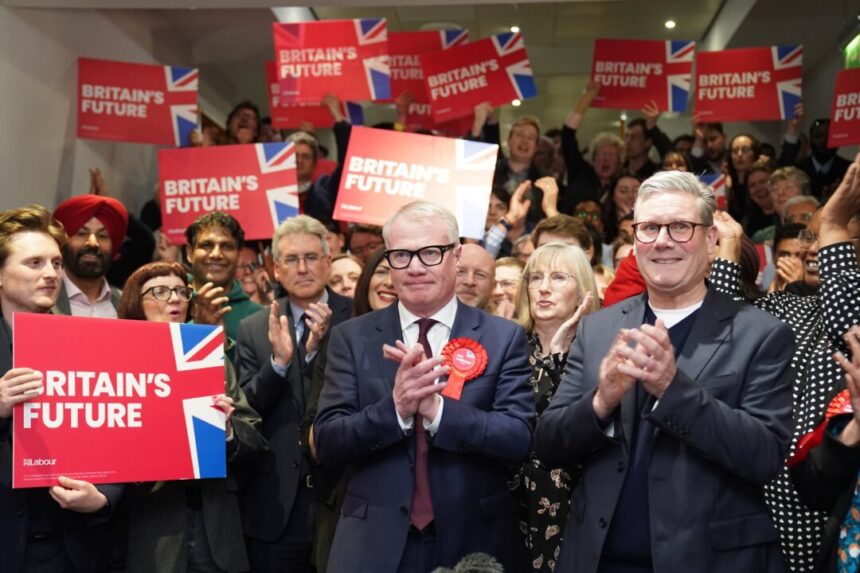Labour celebrated a series of victories in the mayoral elections, with wins by incumbents and a clean sweep in areas voting for a mayor for the first time. The surprise win of Richard Parker in the West Midlands added to Labour’s dominance in the elections this year.
The Tory candidate Andy Street was defeated by the Labour challenger, who won with a slim majority of 1,508 votes. Following his victory, Mr. Parker emphasized that the election results showed a call for Labour and a desire for change.
The loss for the Conservatives continued as Sadiq Khan secured a historic third term as Mayor of London, calling for Prime Minister Rishi Sunak to consider a general election.
Labour secured wins in various regions, with Claire Ward becoming the East Midlands’ first elected mayor, Kim McGuinness winning the North East mayoral election, and David Skaith winning in York & North Yorkshire. Re-elected Labour mayors criticized the government and called for a general election after their victories.
In several contests, Labour not only finished first but also received over 50% of the vote, a significant achievement under the first-past-the-post system. Despite multiple candidates on the ballot, Labour candidates won in key regions such as London, the North East, East Midlands, Birmingham, and York & North Yorkshire.
The elections in the East Midlands, North East, and York & North Yorkshire were crucial battlegrounds for the Conservative-Labour fight in the next general election, with the East Midlands holding many marginal seats. The re-election of Ben Houchen in Tees Valley was a rare Tory success in this year’s mayoral contests.
Overall, Labour’s strong performance in the mayoral elections reflected a growing call for change and highlighted key battlegrounds for future political contests. Please provide an alternative version.
Source link






